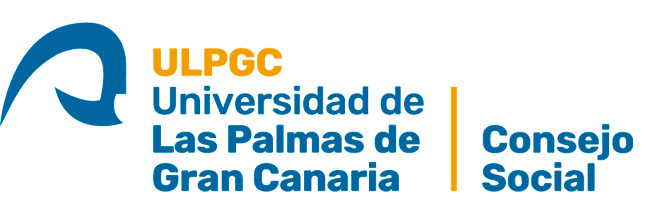The head of the Lanzarote and La Graciosa Chamber of Commerce, Isabel Quevedo Cabrera, recently held an online meeting with the chairman and vice chairman of the Social Council, Jesús León Lima and Ana Suárez Calvo, to learn of the Canarias Importa [The Canary Islands are Important] initiative. The content and proposals of this initiative were presented by Francisco Rubio Royo, honorary rector of the ULPGC and coordinator of the initiative on which ten experts and more than 60 contributors have been working since June 2020.
Also participating in the meeting were Miguel Ángel Acosta, secretary of the ULPGC Social Council, and Carmen Márquez, member of the ULPGC Social Council, along with two other representatives of the Lanzarote and La Graciosa Chamber of Commerce: Julieta Fernández, head of the Business Creation Service, and Patricia Moreno of the Innovation Service.
During his remarks, Jesús León Lima said that the Canarias Importa initiative is a model for the social and economic development of the Canary Islands and not just for the two islands which serve as the regional capital [Gran Canaria and Tenerife], highlighting as a result the importance of presenting the initiative to the Lanzarote and La Graciosa Chamber of Commerce.
Canarias Importa is an open and flexible initiative which offers a development model for the Canary Islands. This initiative brings together the talent generated by the university and the knowledge of experts within society. “This proposal is completely different from those which have emerged as a result of the pandemic, such as the Reactiva Canarias plan” said León Lima, highlighting that “in the Canary Islands we have the sufficient talent to design the future that we want. Often, public bodies such as the Canary Island government forget that we have two Canarian universities and that we even have experts who advise international organisations from the Canary Islands”.
For her part, Isabel Quevedo praised the ULPGC Social Council, congratulating it on its work “which is very much in line with the work conducted by the Chamber of Commerce, such as diversification, sustainability, the blue economy, the vocational training programme, and the fishing economy”. Regarding the senior tourism pilot project put forward by Canarias Importa, she said that it coincides with the vision of the chairman of the Chamber of Commerce, José Torres Fuentes, who could not attend the meeting due to previous commitments.
The ULPGC Social Council has already presented this initiative to the president and vice president of the Canary Island government, the president of the Canary Islands Parliament, the Comisiones Obreras Trade Union, the Real Sociedad Económica de Amigos de País [Royal Economic Society of Friends of the Country] of Gran Canaria and Tenerife, the Confederación Canaria de Empresarios [Canary Island Confederation of Entrepreneurs] and professional associations.
Francisco Rubio Royo explained that, with the use of European funds, Canarias Importa aims to be a structurally transformative process for the future. The three main pillars of this proposal are ecological renovation, digital transformation, and social wellbeing.
“This is an open proposal which is neither restrictive nor exclusive. For this proposal we have firstly decided on three driving areas which should permeate throughout the whole process: the blue, green and orange ecosystems. Secondly, a number of driving areas related to ‘a different, updated tourism’ have been introduced. Finally, there are the strengthening areas such as health care, education, logistics, digital transformation and social wellbeing”.
Rubio Royo emphasised tourism as a driving element in order to take the first step, “a smart, updated, green and innovative tourism”. He moved on to describe the Senior Resort School & Lab pilot project, a micro destination for seniors including not only hotel accommodation but also incorporating innovative related services which make the Canary Islands a global leader in this sector, enhancing a notable creative, digital, sustainable, and silver economy within its vicinity. Within this section, the idea is to establish within the Canary Islands the biggest international network of university schools and businesses with expertise concerning the digital society within the tourism sector, along with the deployment of intelligence systems for data collection. This is in addition to the development of new, innovative and entrepreneurial talent based on business intelligence and corporate R+D.
Similarly, he spoke of the initiatives within the proposal and their alignment with the European Union framework for the receipt of Next Generation funds. According to Canarias Importa, any proposal needs to be aligned with Europe, Spain and the Canary Islands, and with the green, blue and orange ecosystems permeating throughout. Rubio Royo emphasised the need to be ready to make the most of European Union funds. To this end he highlighted the importance of having “a development model for the Canary Islands in the short, medium and long term – a sort of guiding star whose measures and actions respond to the criteria fixed by the European Union for the receipt and management of Next Generation funds”.


